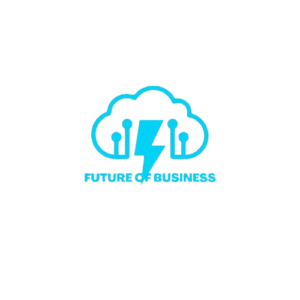Why Marketing Automation Matters Today
Marketing has evolved into a highly data-driven, fast-paced environment where manual efforts often fall short. Businesses are juggling multiple channels, managing customer journeys, and tracking results with greater precision than ever before. Without the right systems in place, it becomes nearly impossible to keep up with modern consumer demands. This is where marketing automation proves its value. By streamlining repetitive tasks, creating personalized customer experiences, and aligning marketing with sales processes, automation ensures efficiency and scalability. Yet, adopting automation is not as simple as purchasing software. Many professionals struggle with setup, integration, and maximizing its potential. This gap highlights why a marketing automation mentorship program is critical. A guided mentorship equips professionals with not just the technical skills, but also the strategic understanding to leverage automation effectively for growth.
The Role of a Marketing Automation Mentorship Program
A marketing automation mentorship program is designed to offer more than just a surface-level understanding of automation tools. Unlike online courses that provide generalized lessons, mentorship offers a tailored learning journey guided by an expert who understands real-world challenges. Mentors provide direct feedback, hands-on guidance, and practical strategies that can be immediately applied to campaigns. This type of learning is interactive and adaptive, ensuring that participants learn the nuances of automation rather than just theoretical concepts. Another distinguishing factor is the accountability mentorship creates. Instead of being left to figure things out alone, professionals gain structured support to help them progress consistently. This makes it easier to build confidence in adopting automation platforms while also learning how to align them with business goals. Ultimately, the mentorship experience is about accelerating skills while avoiding costly mistakes that often arise from trial and error.
Skills You Can Gain from a Marketing Automation Mentorship Program
The value of mentorship lies in the practical skills it delivers. Participants often start by learning how to build automated workflows that nurture leads and move them through the sales funnel effectively. A key skill is CRM integration, ensuring that data flows seamlessly across systems to provide accurate insights. Mentors also guide learners in setting up and measuring performance metrics so they can analyze results with clarity and make data-driven decisions. Another crucial area is personalization—learning how to segment audiences, create targeted campaigns, and use automation to improve customer experiences. Campaign tracking and optimization are also emphasized, teaching professionals how to refine processes for better performance over time. Beyond the technical aspects, mentorship also builds strategic thinking, enabling participants to see automation as more than just tools but as a business growth engine. These combined skills ensure that mentees emerge more capable and competitive in today’s marketing landscape.
Benefits of Joining a Marketing Automation Mentorship Program
Enrolling in a marketing automation mentorship program offers a wide range of benefits for professionals and businesses alike. One of the most immediate advantages is the speed of adoption. Instead of spending months learning through scattered resources, mentorship accelerates the process by providing focused, structured guidance. Another benefit is access to real-world knowledge from someone who has already navigated the complexities of automation. This reduces the likelihood of making common errors that could derail campaigns. Additionally, mentorship builds confidence, allowing professionals to experiment and apply automation with greater certainty. It also fosters accountability, as mentors set expectations and ensure consistent progress. Businesses benefit as well, since skilled employees or leaders can use automation to save time, reduce costs, and scale operations. Over time, the mentorship creates a competitive advantage, ensuring that both individuals and organizations stay ahead in an increasingly automated marketplace.
Who Can Benefit from This Type of Mentorship
A marketing automation mentorship program is not limited to one specific type of professional—it’s valuable across different roles and industries. Entrepreneurs and small business owners often find mentorship particularly beneficial because it helps them build systems that scale without relying heavily on manual work. Marketing professionals looking to upskill can also gain by learning cutting-edge practices that enhance their career opportunities. Sales teams often discover that mentorship improves their collaboration with marketing, as automation creates smoother lead handoffs and pipeline management. For agencies, mentorship ensures they can deliver higher-value services to clients, making them more competitive in their space. Even mid-sized companies can benefit by training employees through mentorship, ensuring internal teams are equipped to handle automation effectively. Essentially, anyone who wants to use marketing automation to improve efficiency, personalization, and results can gain significant advantages from joining a program.
Key Components of an Effective Marketing Automation Mentorship Program
A strong mentorship program is built on structured and practical learning experiences. One core component is personalized coaching sessions where mentors tailor lessons to the unique goals of the mentee. Hands-on projects are another essential feature, as they give participants the opportunity to apply concepts directly to their campaigns. Resources such as templates, frameworks, and tool recommendations provide additional support, saving learners time and helping them adopt proven strategies. Feedback loops are equally important, allowing mentees to refine their approaches with expert insights. Accountability structures, such as progress reviews and performance tracking, ensure participants stay consistent and motivated. Access to a community of like-minded professionals can also enhance the mentorship experience, offering opportunities for collaboration and networking. Collectively, these components make a marketing automation mentorship program both practical and impactful, ensuring learners walk away with actionable skills and long-term confidence.
How to Choose the Right Marketing Automation Mentorship Program
Selecting the right mentorship program requires careful consideration of several factors. First, it’s important to evaluate the mentor’s background and track record. A mentor with proven expertise in automation will provide more valuable insights than someone with only theoretical knowledge. The curriculum is another critical factor—participants should look for programs that cover a wide range of automation topics, from workflow design to analytics and personalization. Flexibility also plays a role, as professionals may need to balance mentorship with their existing work schedules. Support systems, such as availability of resources and responsiveness of mentors, should not be overlooked. Additionally, learners should assess whether the program offers long-term opportunities, such as networking with peers or continued guidance after the formal mentorship ends. By considering these elements, professionals can ensure they choose a marketing automation mentorship program that aligns with both their current needs and future growth goals.
Future-Proofing Your Career Through Mentorship
Marketing is changing rapidly, with new technologies and AI-driven tools emerging every year. For professionals who want to remain competitive, mentorship serves as an anchor that ensures continuous learning and adaptability. By working with an experienced mentor, learners can anticipate industry shifts and prepare for future trends in automation. The skills developed through mentorship also extend beyond immediate campaign management—they foster strategic thinking and problem-solving abilities that remain valuable no matter how the industry evolves. Businesses benefit as well, since teams with automation expertise can innovate faster and deliver greater results with fewer resources. Another advantage is confidence in adopting emerging tools, as mentors can provide insights on how to integrate them effectively. Ultimately, a marketing automation mentorship program doesn’t just build current capabilities; it equips professionals with the mindset and adaptability needed to thrive in the future of digital marketing.
Frequently Asked Questions (FAQ)
What is a marketing automation mentorship program?
It is a structured learning experience where a mentor guides you through mastering marketing automation tools, strategies, and workflows.
How long does a typical mentorship last?
Program lengths vary but typically range from several weeks to a few months, depending on the curriculum and the learner’s pace.
Do I need prior marketing knowledge to join?
Not necessarily. Some programs are beginner-friendly, while others are designed for professionals with existing marketing backgrounds.
What tools will I learn during mentorship?
This depends on the program, but commonly includes platforms like HubSpot, Marketo, ActiveCampaign, Salesforce, and other CRM-integrated tools.
Can mentorship help agencies improve client results?
Yes, agencies benefit greatly as mentorship equips teams with automation strategies to deliver scalable and measurable outcomes for clients.











